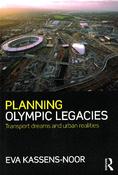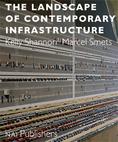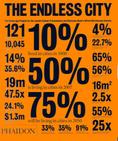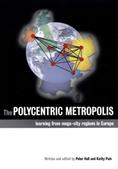events superplaces innovation parks inclusive processes city cartography urban form brownfields simulation premio tesi di laurea call for papers scenarios welfare information technology climate change social practices urban theory call for articles anthropology paesaggio sustainability local plans news citizenship
Planning Olympic Legacies Transport Dreams and Urban Realities
Eva Kassens-Noor
When a city wins the right to hold the Olympics, one of the oft cited advantages to the region is the catalytic effect upon the urban and transport projects of the host cities.
However, with unparalleled access to documents and records, Eva Kassens-Noor questions and challenges this fundamental assertion of host cities who claim to have used the Olympic Games as a way to move forward their urban agendas.
In fact, transport dreams to stage the "perfect games" of the International Olympic Committee and the governments of the host cities have lead to urban realities that significantly differ from the development path the city had set out to accomplish before winning the Olympic bid. Ultimately it is precisely the IOC’s influence – and the city’s foresight and sophistication (or lack thereof) in coping with it – that determines whether years after the Games there are legacies benefitting the former hosts.
The text is supported by revealing interviews from lead host city planners and key documents, which highlight striking discrepancies between media broadcasts and the internal communications between the IOC and host city governments. It focuses on the inside story of the urban and transport change process undergone by four cities (Barcelona, Atlanta, Sydney, and Athens) that staged the Olympics and forecasts London and Rio de Janeiro’s urban trajectories. The final chapter advises cities on how to leverage the Olympic opportunity to advance their long-run urban strategic plans and interests while fulfilling the International Olympic Committee’s fundamental requirements.
This is a uniquely positioned look at why Olympic cities have – or do not have – the transport and urban legacies they had wished for. The book will be of interest to planners, government agencies and those involved in organizing future Games.
CONTENTS
List of Tables
List of Figures
List of Maps
List of Acronyms
Foreword
Preface
Acknowledgements
1. The Olympic Games: an Ephemeral Opportunity for Cities
• The creation of urban legacies
• The creation of transport legacies
• Planning Olympic legacies in four hosts and two future hosts
• Book structure
2. The IOC as a Powerful Stakeholder in the Planning Process
• Introducing the Olympic Games and the IOC
• Olympic transport requirements as a vision for the host city
• The IOCs power in the planning process
• Conclusions
3. Planning for the 1992 Olympics and Barcelona’s Urban Legacy
• Barcelonas urban and transport history
• Barcelonas candidature and Olympic preparations
• Transport performance during the 1992 Olympics
• Transport outcomes and Barcelonas legacy
• Conclusions
4. Planning for the 1996 Olympics and Atlanta’s Urban Legacy
• Atlantas urban and transport history
• Atlantas candidature and Olympic preparations
• Transport performance during the 1996 Olympics
• Transport outcomes and Atlantas legacy
• Conclusions
5. Planning for the 2000 Olympics and Sydney’s Urban Legacy
• Sydneys urban and transport history
• Sydneyscandidature and Olympic preparations
• Transport performance during the 2000 Olympics
• Transport outcomes andSydneyslegacy
• Conclusions
6. Planning for the 2004 Olympics And Athens’ Urban Legacy
• Athens candidature and Olympic preparations
• Transport performance during the 2004 Olympics
• Transport outcomes andAthenslegacy
• Conclusions
• Note
7. The Prospect of a Legacy for London 2012 and Rio De Janeiro 2016
• Planning Londons legacies, Londons candidature and Olympic preparations
• Prospects of a 2012 legacy
• Planning Rio de Janeiros legacies
• Rio de Janeiros candidature and Olympic preparations
• Prospects of a 2016 legacy
• Conclusions
8. Transport Dreams and Urban Realities
• Is the urban planning process altered due to Olympic requirements? If so how?
• What role does the IOC play in urban development and the creation of transport legacies?
• Given the IOCs role how can host cities plan for valuable Olympic legacies and aspire not only to host the best Games ever but also retain the best leg...
• Summary of recommendations
Bibliography
Unpublished sources
Index
ABOUT THE AUTHOR
Eva Kassens-Noor is an assistant professor of Urban and Transport Planning in the School of Planning, Design and Construction (SPDC) holding a joint appointment with the Global Urban Studies Program (GUSP) at Michigan State University. She is also an adjunct assistant professor in Geography. She received her Diplom-Ingenieur in Business Engineering from the Universität Karlsruhe (TH) in Germany, her MST (Master of Science in Transportation) from the Civil and Engineering Department at MIT, and her Ph.D. from the Department of Urban Studies and Planning at Massachusetts Institute of Technology.
Online resources and links




Planum
The Journal of Urbanism
ISSN 1723-0993
owned by
Istituto Nazionale di Urbanistica
published by
Planum Association
ISSN 1723-0993 | Registered at Court of Rome 4/12/2001, num. 514/2001
Web site realized by ChannelWeb & Planum Association | Powered by BEdita 3




